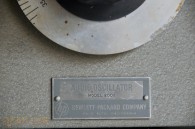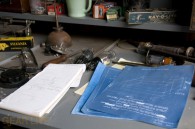Latest Gear Live Videos
Video: President Barack Obama’s Inaugural Address

Posted by Andru Edwards Categories: History, Site Features, US Economy, Videos, War,
If you happened to miss this mornings festivities, here’s your chance to watch President Barack Obama‘s inaugural address, in it’s entirety. President Obama gives a stirring speech on where he sees this country going, and what we all need to do to get there. You can also check out the full transcript of Obama’s address as well.
Read More  | TV Envy
| TV Envy
Advertisement
Barack Obama’s inaugural speech transcript

Posted by Andru Edwards Categories: Elections, History, US Economy, War,
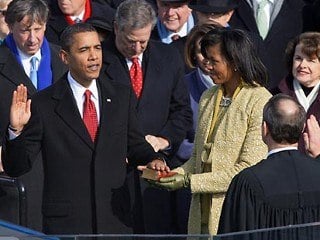 Barack Obama was sworn in on Tuesday, January 20, 2009, as the 44th president of the United States of America. He is also the country’s first (half) African-American president. He gave a stirring speech on this morning - here’s a transcript of that prepared speech:
Barack Obama was sworn in on Tuesday, January 20, 2009, as the 44th president of the United States of America. He is also the country’s first (half) African-American president. He gave a stirring speech on this morning - here’s a transcript of that prepared speech:
My fellow citizens:
I stand here today humbled by the task before us, grateful for the trust you have bestowed, mindful of the sacrifices borne by our ancestors. I thank President Bush for his service to our nation, as well as the generosity and cooperation he has shown throughout this transition.
Forty-four Americans have now taken the presidential oath. The words have been spoken during rising tides of prosperity and the still waters of peace. Yet, every so often, the oath is taken amidst gathering clouds and raging storms. At these moments, America has carried on not simply because of the skill or vision of those in high office, but because We the People have remained faithful to the ideals of our forebearers, and true to our founding documents.
So it has been. So it must be with this generation of Americans.
Click to continue reading Barack Obama’s inaugural speech transcript
TV on DVD: January 20, 2009

Posted by Veronica Santiago Categories: Animation, Comedy, Drama, Kids, Reality, Sci-Fi/Horror, ABC, BBC, Cable, CBS, NBC,
Here are some of the TV on DVD options available this Tuesday:
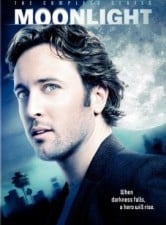
- Criss Angel: Mindfreak (Season 4)
- Emergency! (Season 5)
- Johnathan Creek (Season 3)
- Jurassic Fight Club (Season 1)
- The Last Detective (Complete Series)
- MI-5 (Volume 6)
- MonsterQuest (Season 2)
- Moonlight (Complete Series)
- My Three Sons (Season 1, Vol. 2)
- Paranormal State (Season 2)
- The Powerpuff Girls: 10th Anniversary Collection (Complete Series)
- The Rockford Files (Season 6)
- This American Life (Season 2)
- Waking the Dead (Season 3)
Click here to see the DVD and Blu-ray film options for this week.
Read More  | Amazon
| Amazon
Werd: Pirate - Part Four

Posted by Patrick Snajder Categories: Editorials, History, US Economy,

So in case some of you didn’t get the subtle satire, Part Three of this week’s Werd said that pirates can’t exist without capitalists. If we want capitalism, we should expect pirates; if we want to rid ourselves of pirates, all of the laws and security in the world won’t ever get rid of them, so long as we still cling to capitalism.
Today I received my copy of the January issue of Harper’s Magazine. The very first entry I read is by former Editor-in-Chief Lewis H. Lapham, who writes about the financial crisis, etc. Spurred by Thomas Friedman’s myopic quote that says Americans need to get back to their roots and “thinking about how—not just how much,” Lapham notes that the foundation of America’s independence from Britain was largely due to America’s embrace of privateers, who attacked British merchant ships and sold the profits of the booty to the French to support the revolution. Loathe as I am to include huge block quotes of pirated text, I can’t help but reprint part of Lapham’s opening editorial that relates directly to this week’s Werd and essentially proves the subtle slants of arguments about pirates that I have been setting up all week.[1] Lapham, better than I, writes my perfect and fitting conclusion. Here we go…:
Click to continue reading Werd: Pirate - Part Four
Read More  | Harper's Magazine
| Harper's Magazine
Schlitz to Resume Brewing

Posted by Jenny Lewis Categories: Trends, Food Trivia, History, America, Midwest, Beer,
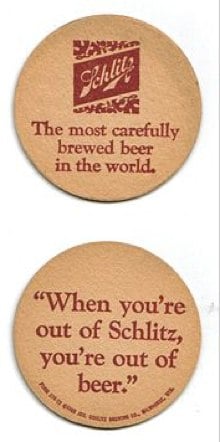 After a number of unsuccessful changes to the brand, the Schlitz brewery (one of the oldest of the old school breweries) closed in 1981. First brewed in 1849, Schlitz beer was successful for over 100 years before changes in production (and the overall quality of the final product) killed the product’s popularity and, therefore, sales. The brand changed hands twice - once in 1982 to Stroh and earlier this year to Pabst - and is now being brewed again and is in such high demand that stores are reportedly limiting the numbers of cases customers can buy at one time.
After a number of unsuccessful changes to the brand, the Schlitz brewery (one of the oldest of the old school breweries) closed in 1981. First brewed in 1849, Schlitz beer was successful for over 100 years before changes in production (and the overall quality of the final product) killed the product’s popularity and, therefore, sales. The brand changed hands twice - once in 1982 to Stroh and earlier this year to Pabst - and is now being brewed again and is in such high demand that stores are reportedly limiting the numbers of cases customers can buy at one time.
Though brewing operations are on the east coast, Schlitz is currently only available in Milwaukee, Chicago, Minneapolis and Western Florida. Pabst is hopeful that the new old brew will be more widely available as brewing operations ramp up.
MSNBC
The Day American History Changed

Posted by K.C. Morgan Categories: Reality, Editorial,

The first televised presidential debates took place between a man named John Kennedy, and another by the name of Richard Nixon. The latter had a darker complexion, a five o’clock shadow and let’s face it - he wasn’t as young and attractive as JFK. Many historians believe that if these debates had not been televised, for the very first time giving Americans an up close and personal look at their candidates, the election might have gone a different way. That’s the power of television.
Now, all debates are televised. Hours and hours of news coverage are devoted to those debates, to interviewing the candidates, to talking about political ideas and promises. For months, those same television newscasters have been talking about this year’s presidential election, and in their way they have helped to write one of the most important pages of history. That’s right: it’s official. Barack Obama has secured the democratic presidential nomination. CNN, via television, broke the story first.
Click to continue reading The Day American History Changed
The Day American History Changed
Bleeding Edge TV 262: HP Garage tour video

Posted by Andru Edwards Categories: Full Episodes, Gizmatic, Features, Home Entertainment, PC / Laptop, Podcasts, Videocasts,
The HP Garage is recognized as the birthplace of Silicon Valley. We got the rare opportunity to get inside of the Garage (thanks to our sponsor HP) to bring you a look at an important piece of tech history. Be sure to also check out our HP Garage photo tour. We also have a bunch of images in our HP Garage photo gallery.
We give you a peek at the rich history behind HP - if you are into tech, this is definitely one to watch. We get the story of how two men took HP from your average startup, to what we see today.
A big thank you goes out to HP and Verizon FiOS for sponsoring this episode.
HP Garage photo tour

Posted by Andru Edwards Categories: Corporate News, Features, PC / Laptop,

We had the honor of getting invited to tour the HP Garage, considered almost universally to be the “birthplace of Silicon Valley.” In a nutshell, the HP Garage is a literal 12’ x 18’ wooden garage. This is where Dave Packard and Bill Hewlett founded the Hewlett-Packard company, way back when in 1939. Yes, even HP was a struggling, bootstrapped startup.
The Gear Live crew, along with Xavier from Notebooks.com, Michael from Hardware Geeks, and Rob from Windows Now, got a fantastic history lesson from HP Archivist Anna Mancini. If you are a geek like we are, you would have had a blast hearing all the interesting tidbits that Anna shared. For example, did you know that the company name was decided by the flip of a coin? Had the coin landed different, the company would have instead been named Packard-Hewlett, and would no doubt have been nowhere near successful. That’s how those things work, right?
Another interesting fact is that the bread and butter of HP was their line of audio oscillators, which they actually made by hand. They even baked the metal slabs in their kitchen oven. Way to save cash, eh? After Disney ordered eight of them to use in conjunction with the release of Fantasia, HP was well on its way to the big time.
We’ve put together an HP Garage tour photo gallery, featuring a good 26 images that Xavier Lanier graciously hooked us up with. Check it out for a fantastic glimpse into the history of consumer electronics.
Read More  | HP Garage photo tour
| HP Garage photo tour
Gallery:
‘Elizabeth: The Golden Age’: A Less Than Royal Film

Posted by K.C. Morgan Categories: Universal, Drama, Period, Sequels, Box Office, New Releases,
 When Cate Blanchett blazed onto the big screen as Queen Elizabeth I nine years ago, Hollywood couldn’t help but to take notice. She commanded royally, earning an Oscar nomination and much acclaim for her role as England’s 16th century monarch. Elizabeth has long been a character of fascination to historians and ordinary people, the daughter of Henry VIII and a woman who led in a time when most females followed. But that doesn’t guarantee Blanchett will lead at the box office, and early reviews are unflattering, to say the least.
When Cate Blanchett blazed onto the big screen as Queen Elizabeth I nine years ago, Hollywood couldn’t help but to take notice. She commanded royally, earning an Oscar nomination and much acclaim for her role as England’s 16th century monarch. Elizabeth has long been a character of fascination to historians and ordinary people, the daughter of Henry VIII and a woman who led in a time when most females followed. But that doesn’t guarantee Blanchett will lead at the box office, and early reviews are unflattering, to say the least.
Elizabeth: The Golden Age showcases the queen during a later period of rule, a hectic time that sees Elizabeth battling for supremacy against the frightening Spanish Armada, and Queen of Scots Mary Stuart. Elaborate sets and costumes give viewers plenty of eye candy in the Golden Age, but the timid approach to bold subject matter is sure to turn audiences off. Blanchett is nearing forty, though The Golden Age portrays a Queen beyond the age of 50. The movie, at least, offers some true historical accuracy – and if it didn’t, I would be the first one to start hollering. Elizabeth was a Protestant in a time when England wasn’t so hip to changing religious trends, a woman who defied convention and the Pope to rule her people the way she desired. This caused a clash between England’s Queen and her own cousin Mary Stuart, the devoutly Catholic Queen of Scotland. The imprisonment and subsequent execution of Mary Stuart has long been a stain on England’s history, and a famous fable that has been re-told countless times. Stuart was the mother of James, who would become King James I of England and the man who brought the Bible to the common folk.
Click to continue reading ‘Elizabeth: The Golden Age’: A Less Than Royal Film
Read More  | Entertainment Weekly
| Entertainment Weekly
California Extreme Channels a Simpler Time

Posted by Paul Hamilton Categories: Culture, Editorial, Retro,

Gamers of a certain age, if given half a chance, will gladly recount grand tales of smoky rooms, dimly lit by a few dozen cathode rays where the only sounds are the white noise of competing digitized soundtracks, crude speech sythesizers, blips and bells, pings and whistles and artificial arpeggios rolling down an electronic scale.
The misty sincerity of those gamers who cut their teeth on the quarter-munching cabinets of Space Invaders, Asteroids, Missile Command and Sinistar is almost enough to make one forget what a mess the modern arcade equivalent has become. The gargantuan interface machines with their elaborate weapon approximations and physical demands juxtapose over a likewise spectacular price per play resulting in a hollow shell of what the old guard knew so well. These are not arcades as exist in those guarded memories, they are interactive entertainment experiences: The kind of branded, marginalized speciality device that has been focus tested and trade-show marketed to get the premium floor space right out front in view of the mall concourse is showpiece here.
Even those arcade machines which can still accurately be described as video games compete for the higher-yield ticket-generating skill games (which ironically involve very little skill). Most of those who recall the days when 3D graphics referred to the vector lines of Tempest pass by these modern emporiums. Perhaps they shake their heads a little or make a disparaging comment. Kids these days. Get off my lawn. They don’t enter; inside is only heartbreak.
Perhaps what hurts the most is that it is a heartbreak we chose. We have no one to blame but ourselves, for while the arcade as it was may be dead, ultimately it is us who killed it.
We wanted the more valuable entertainment experience. We asked for and then demanded a perfect replica of our arcade favorites that we could play at home from the comfort of our couches. We pressed for more arcade-quality graphics on our home consoles until our set top boxes had visuals that outpaced anything showcased on a standalone machine. We asked for, and received, greater narrative depth in our games and as a casualty for our insistence we killed the arcade—the very entity we now mourn.
Click to continue reading California Extreme Channels a Simpler Time
Advertisement
© Gear Live Inc. {year} – User-posted content, unless source is quoted, is licensed under a Creative Commons Public Domain License. Gear Live graphics, logos, designs, page headers, button icons, videos, articles, blogs, forums, scripts and other service names are the trademarks of Gear Live Inc.


